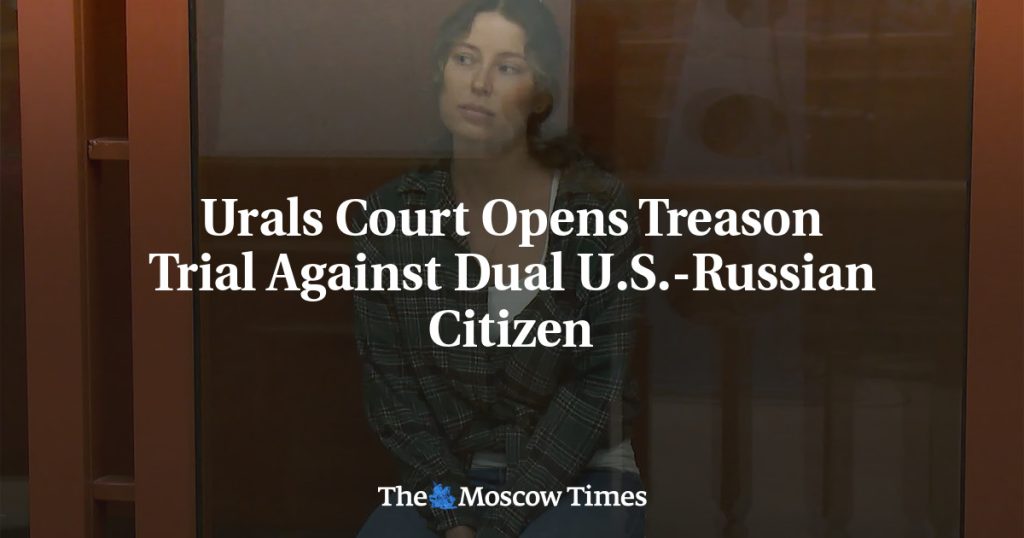Ksenia Karelina, a dual U.S.-Russian citizen, has been accused of treason for donating $50 to a Ukrainian charity. The prosecutors claim that the funds were used by the Ukrainian armed forces to purchase tactical medicine, equipment, weapons, and ammunition. Karelina, who is a 32-year-old ballerina based in Los Angeles, was detained by police in Yekaterinburg while visiting her family in Russia. She faces up to 20 years in prison if found guilty. Her trial is taking place in the Ural city of Yekaterinburg, where she gave a wistful smile to reporters in the courtroom.
The arrest of Karelina is part of a larger trend where Washington has accused Moscow of detaining U.S. citizens on baseless charges in order to use them as bargaining chips to secure the release of Russians convicted abroad. Among the other U.S. nationals currently detained in Russia are reporters Evan Gershkovich and Alsu Kurmasheva, as well as former U.S. marine Paul Whelan. The situation has raised concerns about the treatment of foreign nationals in Russia and the potential political motivations behind these detentions. In a separate case, a U.S. army soldier was recently sentenced to three years and nine months in prison in Russia’s Far East for threatening to kill his girlfriend and theft.
The trial of Ksenia Karelina has sparked controversy and raised questions about the legality and fairness of the charges against her. The situation highlights the delicate relations between the United States and Russia, as well as the challenges faced by dual citizens who may find themselves caught between the political tensions of their two countries. The court proceedings in Yekaterinburg have attracted media attention, with Karelina appearing in the defendant’s cage and giving a wistful smile to reporters present in the courtroom. The outcome of the trial could have broader implications for the treatment of dual citizens and foreign nationals in Russia.
The issue of foreign agents and the challenges faced by independent news sources in Russia have also come to the forefront in light of Karelina’s case. The Moscow Times, an independent news outlet, has been labeled as a “foreign agent” by the Russian government, leading to concerns about press freedom and the integrity of journalism in the country. The staff of The Moscow Times has remained committed to providing accurate and unbiased reporting on Russia, despite facing pressure and censorship. The support of readers and the international community is crucial in ensuring the continued operation of independent media outlets in Russia.
As the trial of Ksenia Karelina unfolds, the broader implications of her case are being closely watched by observers both within Russia and internationally. The accusations of treason and the potential consequences for Karelina, if found guilty, raise concerns about due process and the rule of law in Russia. The treatment of foreign nationals and dual citizens in the country has also come under scrutiny, highlighting the complex dynamics at play in the relationship between Russia and the United States. The outcome of Karelina’s trial will be closely monitored for its impact on the rights and freedoms of individuals caught in the crosshairs of geopolitics.















